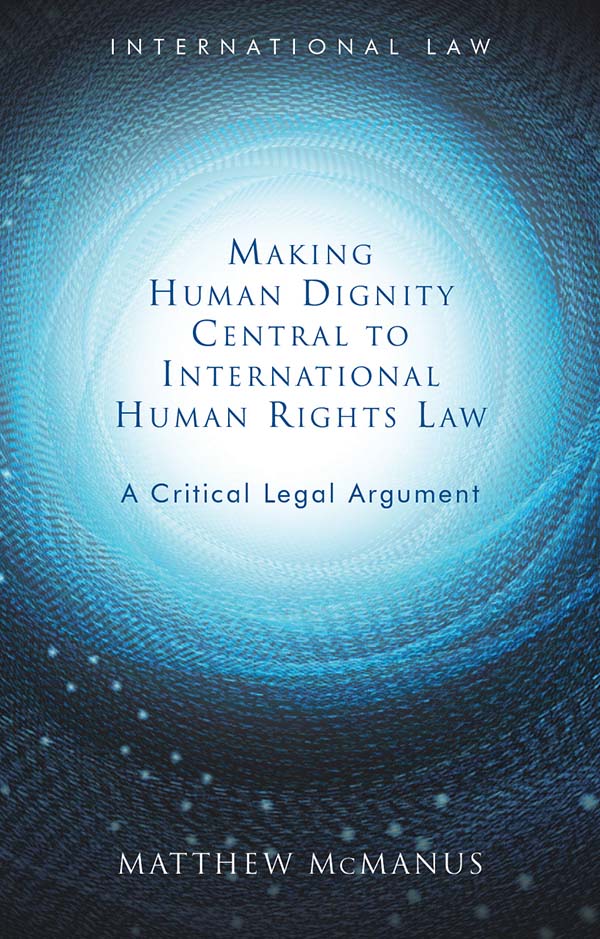Making Human Dignity Central to International Human Rights Law
A Critical Legal Argument
Awdur(on) Matthew McManus
Iaith: Saesneg
Dosbarthiad(au): Social Policy and Law
Cyfres: International Law
- Medi 2019 · 272 tudalen ·216x138mm
- · Clawr Caled - 9781786834645
- · eLyfr - pdf - 9781786834652
- · eLyfr - epub - 9781786834669
Am y llyfr
In recent years, there has been an explosion of writing on the topic of human dignity across a plethora of different academic disciplines. Despite this explosion of interest, there is one group – critical legal scholars – that has devoted little if any attention to human dignity. This book argues that these scholars should attend to human dignity, a concept rich enough to support a whole range of progressive ambitions, particularly in the field of international law. It synthesizes certain liberal arguments about the good of self-authorship with the critical legal philosophy of Roberto Unger and the capabilities approach to agency of Amartya Sen, to formulate a unique conception of human dignity. The author argues how human dignity flows from an individual’s capacity for self-authorship as defined by the set of expressive capabilities s/he possesses, and the book demonstrates how this conception can enrich our understanding of international human rights law by making the amplification of human dignity its fundamental orientation.
Dyfyniadau
‘In this challenging and original work, Matthew McManus explores the unrealized potential of dignity. In pushing back on critical legal traditions where law serves as a tool of the oppressor, McManus endeavours to reimagine law as emancipatory and transformative. He reorients the international human rights project and demonstrates “how it could be used to establish a world in which human dignity was more broadly respected”. At a time of social anxiety and global uncertainty, Making Human Dignity Central to International Human Rights Law is a welcome contribution to the field.’
Dr Kathleen Cavanaugh, ICHR, National University of Ireland (Galway)
‘At a time when much of the post-war human rights project seems to be foundering on so many fronts, Matthew McManus offers us a timely and bold recasting of that project. Both analytically sophisticated and profoundly readable, this book makes a forceful case for placing a retooled concept of human dignity at the very heart of international human rights. It is an important and timely intervention that marks an original and compelling contribution to critical legal scholarship. It deserves to be widely read.’
Dr Trevor Purvis, Carleton University
Cynnwys
Acknowledgements
1. Overview of the Project
PART I: Theorizing the relationship between human dignity and international human rights law
2. Dignity’s Contentious History
3. A Critical Legal Conception of Human Dignity
4. The State, International Human Rights Law and the Amplification of Human Dignity in Practice
PART II: Realizing human dignity in the practice of international human rights law
5. Realizing Human Dignity Through Amplifying Democratic Rights
6. Realizing Human Dignity Through Establishing Rights to an Equality of Expressive Capabilities
7. Concluding Remarks on What it Means to Overcome False Necessity
Notes
Bibliography
Index


